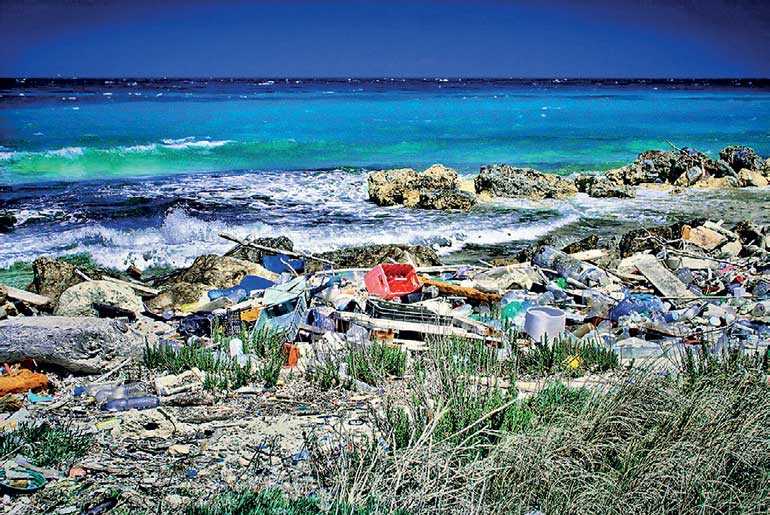Friday Feb 20, 2026
Friday Feb 20, 2026
Tuesday, 24 April 2018 00:00 - - {{hitsCtrl.values.hits}}

LONDON (Thomson Reuters Foundation): British supermarket Waitrose, food giant Nestle and accounting firm KPMG on Tuesday became the latest brands to announce plans to cut down on plastics wreaking havoc on the environment.
Waitrose, an upmarket grocer that treats loyal shoppers with free tea or coffee at its stores, said it will stop using disposable cups – which are very hard to recycle – this year.
Customers will continue to get their free coffee fix if they bring their own reusable cup, the company said in a statement.
“We believe removing all takeaway disposable cups is the right thing to do for our business and are confident the majority of customers will support the environmental benefits,” Tor Harris, the supermarket’s head of sustainability, said.
The shift by some of the biggest high-street names answers widespread consumer disquiet over pollution, accelerated after popular British naturalist David Attenborough urged consumers to stop using plastic bottles in his “Blue Planet II” TV series.
In January, privately-owned Iceland pledged to eliminate plastic packaging from its own-brand products by the end of 2023 – a first by a major British grocer.
KPMG said it would phase out the use of plastic water cups and cutlery at its 22 offices around Britain by the end of the year, after a successful trial in Manchester where employees were given metal water bottles to use instead.
The global accounting firm said it uses about 3 million plastic cups every year, costing 60,000 pounds ($85,000).
“Even with supplying each of our 15,000 employees with a free metal water bottle, the scheme is projected to pay for itself within 18 months,” KPMG’s environment manager Sarah Lindsay said in a statement.
Separately, Nestle, which owns more than 2,000 brands worldwide from chocolate snacks like KitKat and Smarties to Perrier bottled water, announced it aims to make all of its packaging recyclable or re-usable by 2025.
“Plastic waste is one of the biggest sustainability issues the world is facing today,” Nestle chief executive Mark Schneider, said in a statement.
United Nations figures show 8 million tonnes of plastic – bottles, packaging and other waste – enter the ocean each year, degrading precious habitats, killing marine life and entering the human food chain.
Scientists have urged tougher restrictions on plastic waste. In December, almost 200 nations agreed to limit plastic pollution of the oceans, warning it could outweigh fish by 2030.